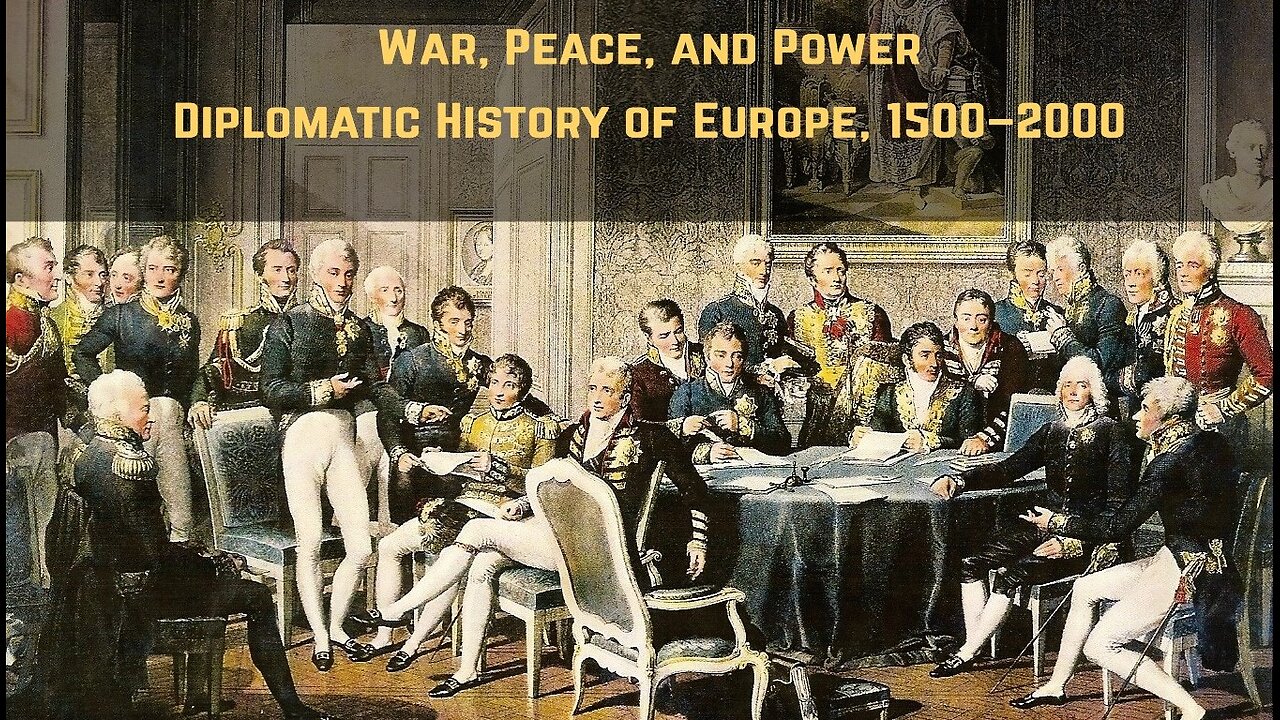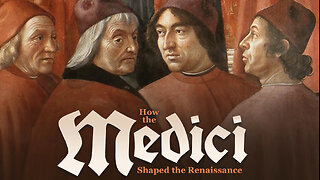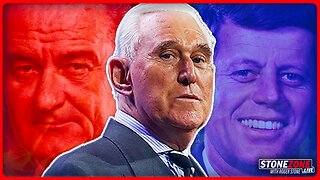Premium Only Content

Diplomatic History of Europe 1500 - 2000 | Foundations of Diplomacy (Lecture 1)
War, Peace, and Power: Diplomatic History of Europe, 1500–2000
36 lectures, 30 minutes/lecture
Taught by Vejas Gabriel Liulevicius
University of Tennessee
Ph.D., University of Pennsylvania
For much of the past five centuries, the history of the European continent has been a history of chaos, its civilization thrown into turmoil by ferocious wars or bitter religious conflicts—sometimes in combination—that have made and remade borders, created and eliminated entire nations, and left a legacy that is still influencing our world. Is there an explanation for this chaos that goes beyond the obvious: political ambition, religious intolerance, the pursuit of state power, or the fear of another state's aspirations? Can we discover a hidden logic that could possibly explain the Thirty Years' War, the Napoleonic Wars, two World Wars, and other examples of national bloodletting? Is it possible to formulate a meaningful rationale against which to order a history as tumultuous as Europe's, gaining insights that enrich our understanding of Europe's past and future, and perhaps even of ours as well?
In War, Peace, and Power: Diplomatic History of Europe, 1500–2000, Professor Vejas Gabriel Liulevicius answers these questions and more as he offers everyone interested in the "why" of history a remarkable look into the evolution of the European continent and the modern state system. In 36 provocative lectures, he allows us to peer through the revealing lens of statecraft to show us its impact on war, peace, and power and how that impact may well be felt in the future—an approach that historians have been using for thousands of years.
Lecture 1: This first lecture lays the essential groundwork for our exploration of European diplomatic history by introducing key concepts and debates in international history. We seek first of all definitions for important terms of the debate, such as “power,” “reason of state,” and the “balance of power.” Next, important debates are presented that will later recur in historically specific situations: primacy of foreign policy versus primacy of domestic policy, Realism versus Idealism as competing schools of thinking about diplomacy, and the question of who or what (leaders, elites, public opinion, ideologies, or other imperatives) steers states in the foreign policy choices they inevitably must make.
-
 30:08
30:08
The Great Courses
1 month agoHow the Medici Shaped the Renaissance | The Godfather: Cosimo de' Medici (Lecture 3)
433 -
 2:05:49
2:05:49
Kim Iversen
10 hours agoTikTok Ban BACKFIRES: Millions Flee To New App Showing The REAL China
104K132 -
 1:35:12
1:35:12
Glenn Greenwald
12 hours agoCNN And Jake Tapper In Deep Trouble In Defamation Lawsuit: With Jonathan Turley; TikTok Ban, Trump's China Policy, And More With Arnaud Bertrand | SYSTEM UPDATE SHOW #390
100K54 -
 12:24
12:24
Dan Bongino Show Clips
13 hours agoPresident Trump Full Interview - 01/16/25
127K298 -
 1:27:39
1:27:39
Man in America
12 hours agoBig Pharma's Deadliest Lie is Being EXPOSED to the Masses w/ Jonathan Otto
73.7K23 -
 1:40:08
1:40:08
Precision Rifle Network
1 day agoS4E2 Guns & Grub - Training Vs. Competition
36.6K1 -
 58:27
58:27
Flyover Conservatives
1 day agoGarrett Ziegler Breaks Down Special Councilor’s Report on Hunter Biden. Insights for Trump’s Top Picks. | FOC Show
63.5K6 -
 44:54
44:54
Steve-O's Wild Ride! Podcast
16 hours ago $10.75 earnedMark Wahlberg Threatened To Beat Up Jackass Cast Member - Wild Ride #251
113K11 -
 1:13:34
1:13:34
Josh Pate's College Football Show
10 hours ago $2.50 earnedCFB Dynasties & Villains | Marcus Freeman OR Ryan Day | 2025 Sleeper Teams | Cole Cubelic Joins
37.5K -
 1:00:26
1:00:26
The StoneZONE with Roger Stone
8 hours agoSHOCKING NEW TAPE PROVES LBJ KILLED JFK! | The StoneZONE w/ Roger Stone
57.7K25